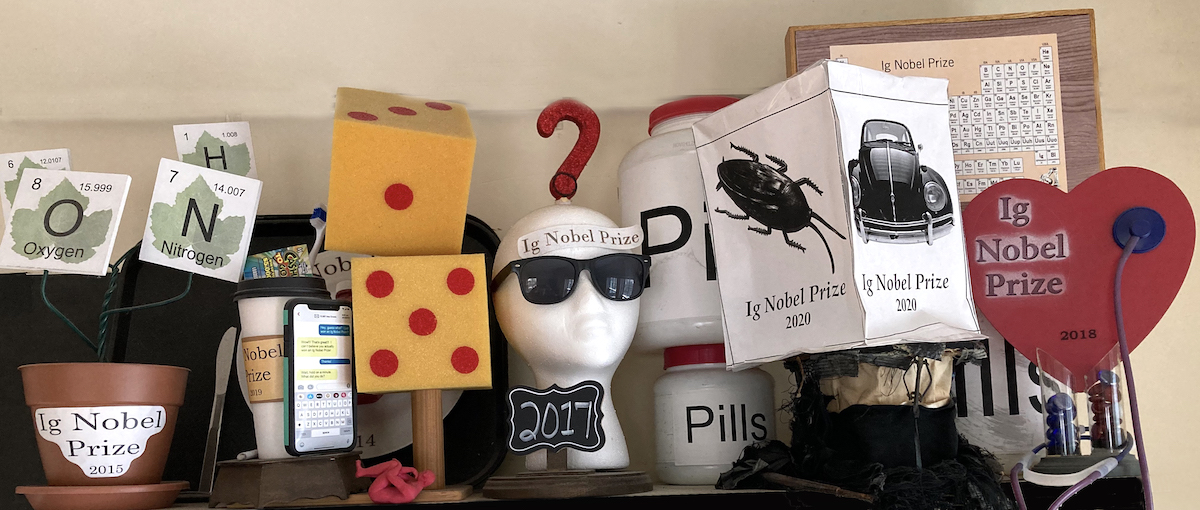
The Ig Nobel Prizes honor achievements that make people LAUGH, then THINK. The prizes are intended to celebrate the unusual, honor the imaginative — and spur people’s interest in science, medicine, and technology.
The Ceremony: The 34th First Annual Ig Nobel Prize ceremony will happen on Thursday evening, September 12, 2024, at MIT (The Massachusetts Institute of Technology) in Cambridge, Massachusetts. After four pandemic-years in which the ceremony happened only online, this will resume the the tradition of doing it with everyone together in a big room with an audience. We are producing the ceremony in collaboration with the MIT Press.
Ig Nobel Face-to-Face: Two days after the ceremony, on Saturday, September 12, 2024, in the MIT Museum, there will be a companion event called Ig Nobel Face-to-Face. The new Ig Nobel Prize winners will ask each other questions about their work, and answer questions from the audience.
(The 33rd First Annual Ig Nobel Prize ceremony, last year, happened on Thursday, September 14, 2023.)
Some History of the Ceremony
The Ig Nobel Prize ceremony is a gala mix of awards ceremony, circus, opera, and many other things. In each ceremony, the Ig Nobel Prizes are physically handed to the winners by genuine (and genuinely bemused) Nobel Laureates.
The First Annual Ig Nobel Prize ceremony happened in 1991 at the MIT Museum in Cambridge Massachusetts. The 1992, 1993, and 1994 ceremonies happened in MIT’s Kresge Auditorium. In 1995 the ceremony moved across town, to Harvard University, where it happened very year until the Covid pandemic in 2020 rendered in-theater events impractical. The Ig Nobel Prize ceremonies during the first four pandemic years (2021-2023) happened exclusively online. The ceremony has been webcast every year, beginning in 1995 (it was one of the very first events video-broadcast on the internet).

How to Nominate Someone (or a Team) for an Ig Nobel Prize
The nomination process is simple and informal. Essentially: tell us what they did, and point us to clear documentation. (Here’s more detail, if you’d like it.)
| For more info, see the list of Ig Nobel Prize winners, and also the Archives (videos and details of past ceremonies) |

“Last, but not least, there are the Ig Nobel awards. These come with little cash, but much cachet, and reward those research projects that ‘first make people laugh, and then make them think'” — Nature
“It’s like the weirdest f-ing thing that you’ll ever go to… it’s a collection of, like, actual Nobel Prize winners giving away prizes to real scientists for doing f’d-up things… it’s awesome.” —Amanda Palmer
Get an email reminder when the next Ig Nobel ceremony is approaching. Enter your E-mail (to join our private E-mail list):
